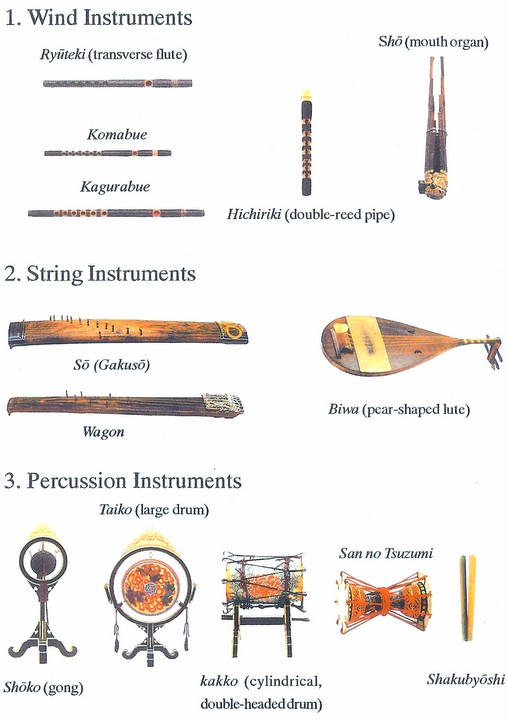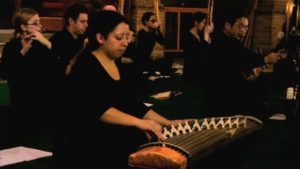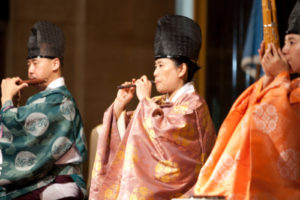Conference Report
Female and Male Role-Sharing in Japan: Historical and Contemporary Constructions of Gender
On December 18-21, 1991, an international conference titled “Female and Male Role Sharing in Japan: Historical and Contemporary Constructions of Gender” was held at the University of Michigan in Ann Arbor. Both North American and Japanese scholars participated. What follows is a list of papers presented; those interested in further details should contact Joanne Heald, Center for Japanese Studies, 108 Lane Hall, Ann Arbor, MI 48109-1290 (Tel. 313-764-6307).
Panel One
Red Trousers and Gender: Status and Gender Distinctions in Ancient Codes of Dress*
Sachiko Takeda (History, Osaka University of Foreign Studies)
Holding the Line: The Prevalence of Female Sovereignty in Early Imperial Japan and the Case of Emperor Koken-Shotoku
Joan Piggott (History, Cornell University)
Discussants:
Diane Owen Hughs (History, University of Michigan)
Ronald B. Toby (History and East Asian Studies, University of Illinois, Champaign-Urbana)
Panel Two
Medieval Nuns and Nunneries*
Ryoichi Hosokawa (Religious Studies, Kyoto Tachibana Women’s College)
Desires and Demons: Gendering Sexuality in Twelfth-Century Japan
Hitomi Tonomura (History, University of Michigan)
Discussants:
Helen Hardacre (Religious Studies, Griffith University)
Paul Groner (Religious Studies, University of Virginia)
Panel Three
Role Sharing in Medieval Japan: Warrior-Class Women and Village Women*
Yasuko Tabata (History, Kyoto Tachibana Women’s College)
Medieval Ie and Gender: Emperors, Aristocrats, Townspeople, and Outcastes*
Haruko Wakita (History, Osaka University of Foreign Studies)
Discussants:
Thomas Keirstead (History, McGill University)
Suzanne Gay (History, Oberlin College)
Panel Four
Prostitution in Early Modern Japan*
Hiromi Sone (History, University of Kobe)
The Women of Hanaguruma-cho: Wage-Labor and Gender in Bakumatsu Nishijin
Gary Leupp (History, Tufts College)
Discussants:
Julia Adams (Sociology, University of Michigan)
Mary C. Brinton (Sociology, University of Chicago)
Panel Five
Division of Labor and Women in Early Modern Japan*
Fuyuhiko Yokota (History, University of Kobe)
Japanese Nationalism and the Female Body: Women in the Silk Industry as National Subjects?
Mariko Tamanoi (Anthropology, University of Iowa)
Discussant:
Kathleen Uno (History, Temple University)
Panel Six
Formulation of the “Female” in Modern Japan*
Masaki Hirota (History, Osaka University)
Eroticizing the Japanese Cafe Waitress
Miriam Silverberg (History, University of California – Los Angeles)
Discussants:
Marilyn Ivy (Anthropology, University of Chicago)
Judith Allen (History, Griffith University)
Panel Seven
Reproduction and Midwives in Early Modern and Modern Japan*
Emiko Ochiai (Sociology, Doshisha Women’s College)
Hygiene and Women in Modern Japan*
Ryuichi Narita (History, Nihon Women’s College)
Discussants:
Margaret Lock (Medical History, McGill University)
Yuki Fujime (History, Konan College)
Panel Eight
Women’s Diary: Japan and the West*
Yuko Nishikawa (Literature, Chubu University)
Matsuo Taseko and the Meiji Restoration: Texts of Self and Gender
Anne Walthall (History, University of California – Irvine)
Discussants:
Anne Herrmann (English and Women’s Studies, University of Michigan)
Yoko Iwahori (History, Osaka University of Foreign Studies)
Panel Nine
From Ars Erotica to Scienze Sexualis: The Impact of Western Sexology in Early Meiji Japan*
Chizuko Ueno (Sociology, Kyoto Seika College)
The Rhetoric of Androgyny in Japan
Jennifer Robertson (Anthropology and Women’s Studies, University of Michigan)
Discussants:
Sherry Ortner (Anthropology and Women’s Studies, University of Michigan)
* paper presented in Japanese.
Letter to the Editor
(excerpted)
“….Reading in IMJS REPORTS, (Vol. 3, No. 1: August 1991 Summer Seminar of the Kenkyukai Nihon no josei to Bukkyo) the summary of discussions held there on the ‘state of the field’ now as compared with eight years ago, I felt that the conclusions reached seemed to apply only to the field in Japan. I understand why the participants’ purview is so domestic. Still, if the subject of “Women and Buddhism in Japan’ is to be recognized in world academia as a “field’ (as the seminar participants advocate), then the field must improve its international interface. For onething, when the Kenkyukai is planning a Summer Seminar such as the one reported on in IMJS REPORTS, could it not be arranged that they send preliminary announcements, invitations, and calls for papers to scholars on the IMJS mailing list? Knowing about such seminars well in advance, I for one might make special efforts to attend or participate in some way. In the meantime, the IMJS performs a great service by publishing such reports of the Kenkyukai’s proceedings and distributing copies of abstracts, and I hope IMJS will continue to do so.”
—Edward Kamens
Yale University
[ Volume 1 of IMJS Reports was prepared by Indra Levy ]





 In conjunction with the Gagaku-Hōgaku Classical Japanese Music Curriculum and Performance Program at Columbia University, launched in September 2006, the Institute for Medieval Japanese Studies presents several public gagaku concerts and instrumental workshops to introduce the ancient music of Japan to a greater audience at Columbia University and in New York.
In conjunction with the Gagaku-Hōgaku Classical Japanese Music Curriculum and Performance Program at Columbia University, launched in September 2006, the Institute for Medieval Japanese Studies presents several public gagaku concerts and instrumental workshops to introduce the ancient music of Japan to a greater audience at Columbia University and in New York.